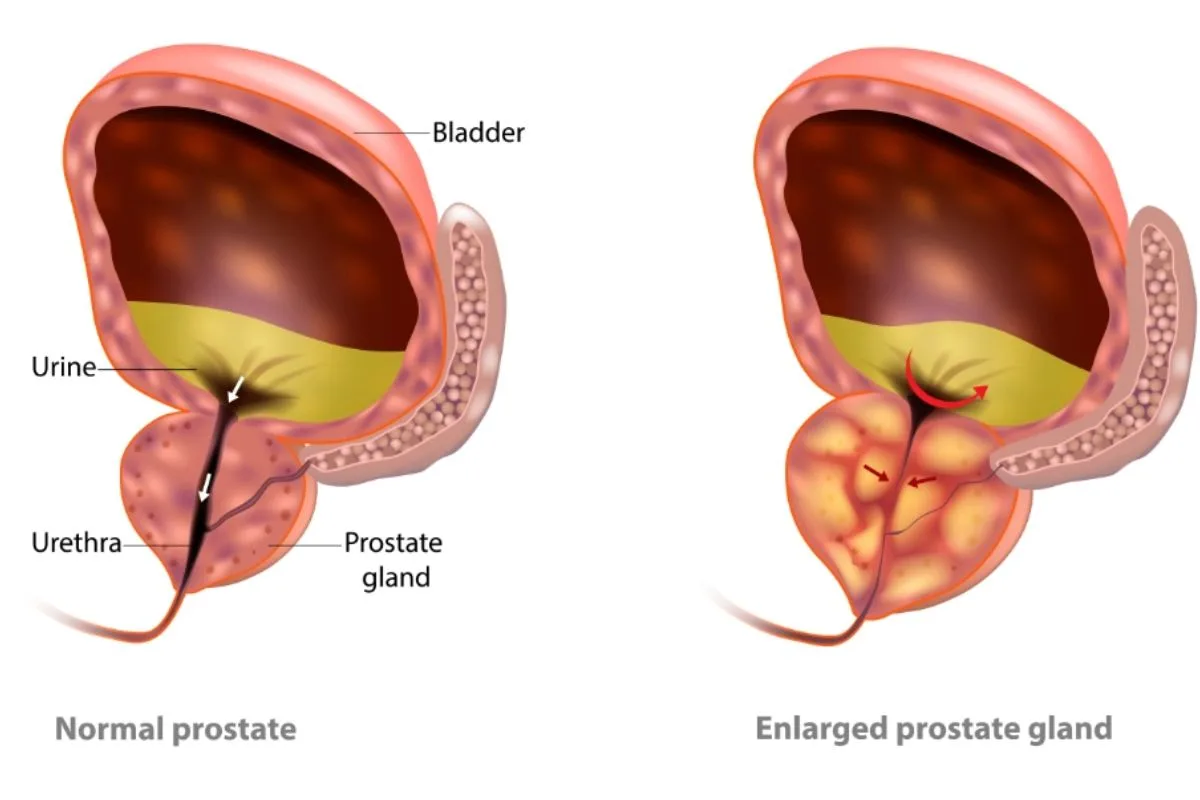Prostate Cancer Screening: When to Start & What the Latest Guidelines Say
As men in Lebanon get older, questions about health screenings naturally come up.
One topic that often causes confusion and sometimes worry is prostate health.
You might be wondering, “Do I really need to get checked?” or “At what age should I begin?”
Understanding Prostate Cancer Screening: When to Start & What the Latest Guidelines Say is crucial for making informed decisions about your health.
We at Modern Care are here to help clarify these important points for you.
Understanding Prostate Cancer
The prostate is a small gland that plays a big role in men’s reproductive health.
It’s located just below the bladder and produces fluid that nourishes and transports sperm.
Prostate cancer develops when cells in the prostate grow out of control.
It’s one of the most common cancers among men, but often grows slowly.
Early detection can make a significant difference in treatment outcomes.
Who Should Consider Screening for Prostate Cancer?
Deciding when to start prostate cancer screening isn’t a one-size-fits-all answer.
It depends on several factors, including your age, family history, and ethnic background.
Generally, discussions about screening begin for men in their 40s to 50s.
Key Risk Factors to Consider:
- Age: The risk of prostate cancer increases significantly after age 50.
- Family History: Having a father or brother who had prostate cancer before age 65 doubles your risk.
- Ethnic Background: Men of African or Caribbean descent have a higher risk and may develop it earlier.
- Genetic Mutations: Certain inherited gene changes, like BRCA1 or BRCA2, can increase risk.
If you’re concerned about your risk factors, especially if cancer runs in your family, it’s always best to speak with a urologist.
Common Screening Methods Explained
When we talk about prostate cancer screening, there are two primary methods you’ll often hear about.
It’s important to understand what each involves and what it can tell us.
| Screening Method | What it Is | What it Detects | Pros | Cons |
|---|---|---|---|---|
| PSA Blood Test | A blood test measuring Prostate-Specific Antigen levels. | Elevated PSA can indicate prostate cancer, but also other conditions like BPH or infection. | Non-invasive, widely available. | Can lead to false positives (high PSA without cancer) or false negatives (normal PSA with cancer). |
| Digital Rectal Exam (DRE) | A physical exam where a doctor checks the prostate for abnormalities (lumps, hard spots). | Physical changes in the prostate that might suggest cancer. | Simple, quick, can detect aggressive tumors not picked up by PSA alone. | Can be uncomfortable, less sensitive than PSA for small cancers. |
Neither test is perfect on its own, which is why your doctor might recommend a combination of these, or further investigations if results are abnormal.
The Latest Guidelines: A Balanced Approach
Guidelines for prostate cancer screening have evolved over the years.
Once, widespread screening was common, but now the focus is on a more personalized, shared decision-making approach.
This means discussing the potential benefits and risks with your doctor before deciding to screen.
General Recommendations for Discussion:
- Ages 55-69: For men in this age group, screening decisions should be made in consultation with your doctor. Consider your overall health, life expectancy, and personal values.
- Ages 40-54: Screening may be considered for men with higher risk factors, such as a strong family history of early prostate cancer or African American ethnicity.
- Age 70+: Routine screening is generally not recommended for men over 70 who are in good health, as the harms often outweigh the potential benefits. For those with excellent health and a longer life expectancy, a discussion with a urologist is still appropriate.
Remember, these are general guidelines.
Your individual health profile and preferences are always paramount.
Making an informed decision about screening is a personal journey.
We believe in empowering you with the right information and support.
Considering your options? We can help! Call us at 96176887676 or book a consultation to get started.
FAQs About Prostate Cancer Screening
What are the benefits of prostate cancer screening?
The main benefit is detecting prostate cancer early, when it’s most treatable.
This can lead to better outcomes and, in some cases, save lives.
Early detection can help identify aggressive cancers before they spread.
What are the risks of screening?
Screening isn’t without potential drawbacks.
These can include false positives (leading to anxiety and unnecessary follow-up procedures like biopsies), overdiagnosis (finding slow-growing cancers that might never have caused problems), and overtreatment (leading to side effects like incontinence or erectile dysfunction).
How often should I get screened if I decide to start?
If you and your doctor decide that screening is right for you, the frequency will depend on your PSA levels and other risk factors.
For many, annual or biennial screening might be recommended.
It’s a discussion to have with your urologist.
You can find more general health medical facts here.
Ultimately, the decision regarding Prostate Cancer Screening: When to Start & What the Latest Guidelines Say is deeply personal.
We encourage you to have an open conversation with your healthcare provider about your personal risk factors, preferences, and the potential benefits and harms of screening.
At Modern Care, your trusted urologist clinic in Antelias, Lebanon, we are committed to providing clear, compassionate guidance and advanced urological care.

